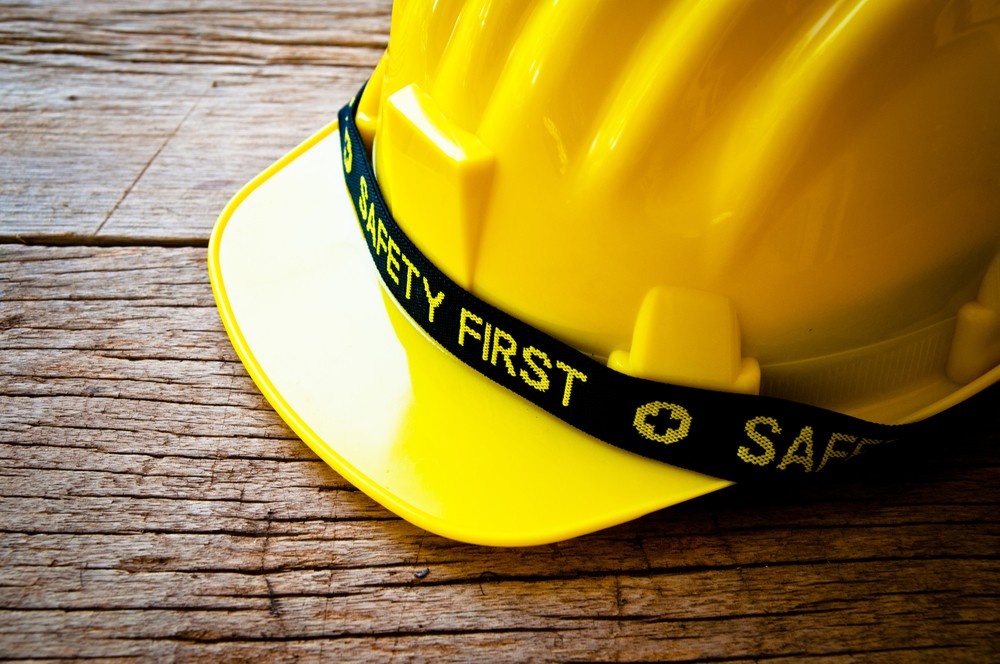News Post
December 2015 Newsletter
New court guidance could see safety penalties top £10 million
Large companies could face fines of over £10 million for the most serious health and safety offences and more than £20 million for corporate manslaughter convictions under new sentencing guidelines issued today.
The Sentencing Council’s guidance, which comes into force on 1 February 2016 and will apply regardless of the date of the offence, will give judges a framework of tiered penalties for different sizes of organisation, level of harm risked and culpability.
New guidance will extend to all health and safety offences, where current guidance covers just fatalities. It is modelled on the sentencing guideline for environmental offences, which was introduced in July 2014.
Once the court has established a starting point using these factors, it must take into account financial information, such as the profit margin of the organisation or the potential impact on employees, and any aggravating or mitigating factors. There are a total of nine steps judges must complete to arrive at the fine.
Launching the consultation on the guidelines a year ago the council said that, in the past, some offenders did not receive fines that properly reflected the crimes they committed. It wants fines to be proportionate to the seriousness of the offence and the means of offenders. The council says it received more than 100 responses to the consultatio but the final guideline mirrors last year’s draft.
Company and safety consultant fined for death of worker
A fuel company and an independent safety consultant have been fined a total of £54,000 for health and safety failings which led to the death of an employee in March 2013.
Hayes Fuels and consultant Stanley Gibson were sentenced at Laganside Crown Court after an investigation into the incident by the Health and Safety Executive for Northern Ireland (HSENI).
The employee was working in a warehouse, operated by Hayes Fuels, where pre-packed fuel products stored on pallets were stacked on top of each other.
The method of stacking used by Hayes Fuels resulted in some of the pallet stacks becoming unstable, and on the day of the incident the system of work involved the employee working at the base of these pallets.
One of the pallet stacks fell over, resulting in the product falling on to the employee who died two days later from his injuries.
Stanley Gibson, a health and safety consultant engaged to assist Hayes Fuels, had carried out a risk assessment of the area and had identified that there might be an issue with the storage system. However, he failed to complete the assessment and identify the control measures required to prevent material falling from height.
The Health and Safety Executive of Northern Ireland (HSENI) found a number of breaches by Hayes Fuels, including:
• failing to provide adequate measures for employees and non-employees for working close to material stored at height;
• failing to provide measures to ensure that they were not required to work near unstable pallets; and
• suitable storage systems should have been developed to prevent material falling from a distance and harming people, including the correct placement of products onto pallets, stacking on level ground and adhering to height limits.
Hayes Fuels, Dungannon, Co Tyrone. was fined £50,000 and ordered to pay costs of £1,500.
Stanley Gibson, Stanley Gibson Partnership, Belfast was fined £4,000.
Speaking after sentencing the inspector with HSENI’s Major Investigation Team said: “This preventable accident caused the needless death of the employee and today our thoughts are with his family.
“It is essential that businesses ensure that material is stored properly, and that proper systems are put in place to safely access stored material.
“Businesses and consultants must systematically identify all significant risks and develop appropriate control measures. Tragically, in this case, information that was available was not acted upon.”
Saw mill fined after employee suffers severe hand injuries
A saw mill in Kettering was fined after an employee suffered a serious injury to his left hand.
The agency worker, was working at Brigstock saw mill on 14 August 2014 when his hand was drawn into the rotating blade of an inadequately guarded large band saw.
Northampton Magistrates’ Court heard on Tuesday 6 October 2015, that the agency worker had been working on the saw with another employee and he had been levering the material being fed to the saw using a crow bar when he slipped and his left hand was drawn into the blade. His ring finger was badly damaged and later required plastic surgery.
An investigation by the HSE found the company had failed to ensure that effective measures were taken to prevent access to the dangerous parts of the saw.
Following the accident, Brigstock Saw Mill has installed a protective wooden box to ensure that operators are not able to stand within close distance to the blade of the saw.
Midlands Renewable Fuels LLP (Brigstock saw mill), was fined £5,000 with costs of £876.50 and a £175 victim surcharge, after pleading guilty to breaching Regulation 11 of the Provision and Use of Work Equipment Regulations 1999.
After the hearing, the HSE inspector, said: “Had the company taken suitable measures to ensure workers did not come into contact with the rotating blade, this incident would have been easily prevented. Had the saw been properly guarded, the agency worker would not have been injured.”
National Grid admits breach over 11-year-old’s fatal fall
A utility company has admitted a health and safety breach after a boy died when he slipped from an exposed gas pipe and fell into a canal. National Grid admitted failing to guard the pipeline but said 11-year-old Robbie Williamson, from Burnley in Lancashire, would have tried to access it if it had been protected the BBC has reported.
It was heard in court how Robbie died while playing a game of dare with friends on 22 April 2014.
He was using the pipe to cross the Leeds and Liverpool Canal in the town. A post-mortem examination found Robbie died from drowning and a head injury. A verdict of accidental death was recorded at the inquest.
It was heard at Preston Crown Court how the company has responsibility for the cast iron pipe attached to Dugdale Bridge, near Lowerhouse Lane.
Following an HSE investigation into the incident the firm has pleaded guilty to failing to discharge their duty in ensuring “as was reasonably practicable” the health and safety of others by exposing them to risk of injury.
Following his death, National Grid installed protection on the pipe and have carried out a review of all the other pipe crossings it owns.
A Newton hearing has been scheduled to take place on 8 December.
£200k corporate manslaughter fine after worker dies in wall collapse
Hertfordshire building firm, Linley Developments has been sentenced for the corporate manslaughter of a worker who was crushed when a structurally unsound retaining wall collapsed. The company’s managing director and project manager were both also given suspended prison sentences after pleading guilty to breaching CDM Regulations.
It was heard in court how the worker died instantly on 30 January 2013 when a wall collapsed on him in on Mile House Lane in St Albans.
Two days before the incident, managing director Trevor Hyatt visited the site to find that the foundations for the store room would leave the floor at a higher level than in the adjoining building. Project manager Alfred Baker suggested putting in a step but the client said he would prefer them at the same level.
Two workers told Mr Hyatt that, if they were to dig lower, they might need to underpin the footing of the existing wall. He told them to dig to a lower level regardless.
An investigation found that:
• Linley Developments, failed to carry out a risk assessment or create a method statement for the excavation;
• Linley Developments had not installed supports or buttresses to prevent the wall falling forward as the trench deepened; and
• the wall was inherently unsafe because, during construction a year before, the foundations had not been bonded with it.
Trevor Hyatt, 50, of Letty Green, Hertford was given a six month prison sentence, suspended for two years, after pleading guilty to breaching Regulations 28 and 31 of the Construction (Design and Management) Regulations. He was also fined £25,000 with £7,500 in costs. Judge Bright said he had considered disqualifying him as a director but did not believe it “necessary, proportionate or just to do so”.
Alfred Barker, 59, of Gazeley, Suffolk was given a six month prison sentence, suspended for two years, after pleading guilty to breaching Regulations 28 and 31 of the Construction (Design and Management) Regulations. He was ordered to pay costs of £5,000.
Mr Hyatt and Mr Baker also faced charges of gross negligence manslaughter, but they were not proceeded with after they pleaded guilty to the two CDM breaches.
Linley Developments was fined £200,000 and ordered to pay costs of £25,000 after pleading guilty to corporate manslaughter on 7 September. It was allowed to pay the fine over six years. The judge also made a publicity order against the company.
LPG supplier fined following tanker gas leak
An LPG supplier has been fined £25,000 after a large leakage from a tanker caused the emergency services to evacuate 15 people from nearby houses. The HSE said the serious occurrence could have endangered lives had the LPG liquid and gas ignited.
Swansea Magistrates’ Court heard how on 28 October 2012, a LPG tanker vehicle was offloading propane LPG into a number of smaller LPG vessels.
During the offloading, the tanker driver heard a loud bang and saw LPG gas vapour coming from the underside of the tanker.
The driver initiated an emergency shutdown, but it failed to fully close the main isolation valve on the vessel and LPG liquid gas vapour continued to leak from a broken flange on the pump.
The emergency services attended and set up an exclusion zone which resulted in residents from nearby houses being evacuated. The tanker lost around 11,700 litres (6 tonnes) of propane LPG.
On 8 October, Flogas Britain Limited, of Ryans Way, Syston, Leicester was fined a total of £25,000, and ordered to pay £8673.12 in costs after pleading guilty to offences under Section 2(1) and 3(1) of the Health and Safety at Work etc Act 1974.
Speaking after the hearing the HSE Inspector said: “This was a serious and dangerous occurrence. If the LPG liquid and gas had ignited there would probably have been a large fire or explosion, which may have endangered the lives of the fire service and the Flogas employee”
Insufficient control measures means £28K fine
Pirelli Tyres Limited has been prosecuted after a 17-year-old apprentice suffered serious injuries to his hands while using a metalwork lathe.
The teenager was making a trolley for a tool box on 19 August 2014 at the tyre manufacturer’s site in Burton-on-Trent where he was working as a mechanical maintenance apprentice.
Stafford Magistrates’ Court heard the apprentice was making a spindle for the wheels of the trolley using emery cloth while wearing gloves to perfect the finish. The spindle was fitted to a lathe and the cloth snagged pulling him into the lathe. He suffered several breaks to his fingers and wrist and one finger was partially severed. Following the incident the injured worker has had three operations on his hands including metal pins fitted and his partially severed finger may still need to be amputated.
Investigating, HSE found there were very few control measures in place to prevent the incident. It was common practice for employees to use emery cloth to polish using lathes but no risk assessment was in place for this activity. It also found the training of apprentices at Pirelli Tyres on this matter was insufficient.
Pirelli Tyres Limited of Burton-on-Trent pleaded guilty to breaching section 2(1) of the Health and Safety at Work etc. Act, 1974 and section 3(1) of the Management of Health and Safety at Work Regulations 1999 and were fined a total of £28,000. The company was also ordered to pay costs of £1,418.60 and a victim surcharge of £120.
Speaking after the hearing the HSE inspector said: “It is entirely foreseeable that if emery cloth is used on a lathe incorrectly then serious injury could occur.
“HSE has a specific information sheet on this practice and had this been followed by the company and a suitable risk assessment carried out, this incident could have been prevented. Every year there are serious accidents involving the use of emery cloth on metalworking lathes.
“Pirelli Tyres Limited has since taken action to deal with the deficiencies we identified during this investigation.”
Safety precautions could have prevented death, court hears
A company which manufactures and supplies high-strength bar and cable systems has been fined £200,000 after an agency worker, who had only been at the company for three weeks, died when he was pulled into a machine.
The worker, suffered fatal crush injuries when his clothing got caught in a machine which was used to apply adhesive tape to bars to stop corrosion.
He was working for the McCalls Special Products Limited, in Sheffield, when the incident occurred in January 2013.
Sheffield Crown Court heard that McCalls Special Products Limited (trading as Macalloys), of Caxton Way, Dinnington, Sheffield, pleaded guilty to breaches of section 2 and section 3 of the Health and Safety at Work Act etc. 1974 and was fined a total of £200,000. It must also pay £16,804 in costs.
The HSE inspector, who investigated and prosecuted this case for HSE, said: “The law requires that employers take all reasonable steps to guard against access to such dangerous parts of machinery. This risk associated with this machine should have been assessed by the company – and it was not. It should have been adequately guarded – and it was not. Simple safety precautions would have prevented this awful incident happening.”
‘Obvious’ risk ignored by Hotel Chocolat
Hotel Chocolat, the Chocolate manufacturer, has been prosecuted after a worker suffered serious hand and arm injuries whilst cleaning a machine tank.
The worker, was working as a cell supervisor for the company on 16 August 2014 when he was asked to clean the tank of a chocolate enrobing machine so it could be reassembled for production.
Peterborough Magistrates’ Court was told that he was emptying the tank when a blue cloth he was holding became entangled in the rotating stirrer mechanism. The cloth continued to wrap around his finger, twisting his arm and then tearing the finger off, stripping the tendon from his arm. He was unable to work for over two months and still suffers with depression and nightmares about the incident.
According to HSE’s investigation, the company’s risk assessment process had failed to recognise the hazard posed by the rotating stirrer and had therefore failed to effectively prevent access to the dangerous parts of the machinery.
Hotel Chocolat Limited, of Mint House, Royston, Hertfordshire, pleaded guilty to breaching:
• regulation 11(1) of the Provision and Use of Work Equipment Regulations 1998
• regulation 3(1)(a) of the Management of Health and Safety at Work Regulations 1999.
The company was fined a total of £25,000 and ordered to pay costs of £2,521.26 and a victim surcharge of £200.
Speaking after sentencing, the HSE Inspector said: “This serious injury was entirely preventable. The risks associated with rotating parts are well known and span many industries. The risk posed by the unguarded stirrer should have been obvious.
“The company should have put measures in place to prevent access to the dangerous parts of the machinery, not rely on the operator to isolate it. Following the incident they took the decision to fit interlocks and E-Stops to the tank units on 12 of these machines.”
Recycling firm sentenced over safety failing after death of father of six
A waste recycling firm has been sentenced after admitting safety failings related to a worker being killed at its premises in Batley.
Bradford Crown Court heard that on 17 August 2012, an employee of Gwynn Davies-McTiffin Ltd was found lying seriously injured at the bottom of a horizontal baling machine.
His legs had been partially severed inside the machine and had to be amputated by a doctor at the scene. The 50-year-old father of six died two days later.
The court heard though there were no witnesses to the incident, it seems likely the deceased was fatally injured when he fell into the baling machine’s hopper while clearing a blockage. A steel pole was found in the chamber, suggesting that the employee had been using the pole to clear a blockage at the time of the accident.
The Health and Safety Executive (HSE) that brought the prosecution said its investigation found that as the machine was operational at the time, and it is likely that the employee falling into the hopper cleared the blockage, causing the machine to automatically restart.
HSE served a Prohibition Notice on the company on the day of the incident prohibiting use of the baler involved due to the guarding deficiencies allowing access to dangerous parts. An Improvement Notice was also served requiring the company to provide systems of work for all foreseeable interventions on the baler.
HSE told the court that failings at the company’s premises in Batley were systemic. Health and safety management systems fell far short of what was required with management failing to ensure that long standing actions from risk assessments were implemented or that safe working practices for clearing blockages were put in place.
The court heard that blockages occurred every shift at the plant, with employees describing various unsafe methods of clearing blockages in the hopper of the baler. These included standing on the top platform, leaning over the side and prodding the blockage with a stick, climbing over the side of the machine and standing on the conveyor belt at the top of the hopper or jumping on the cardboard blockage within the hopper.
Gwynn Davies-McTiffin Ltd of Ings Mill, Bradford Rd, Batley, West Yorkshire was fined £80,000 with costs of £40,000 after pleading guilty to breaching Section 2 (1) of the Health & Safety at Work etc. Act 1974.
The HSE inspector, who carried out the investigation added: “The risks of clearing blockages at baling machines are well known in the manufacturing industries, particularly in waste recycling industries.
“Adequate guarding of dangerous moving parts and the provision of safe systems of work including isolating and locking-off machinery are the basic principles for protecting employees.
“Various unsafe methods of clearing blockages were used by several employees over a long period of time. There was no supervision or monitoring by management. This was an entirely foreseeable accident which resulted in fatal consequences.
HSE issues health warning to the stone industry
The Health and Safety Executive is urging the stone industry to do more to protect workers’ health following findings of a recent inspection initiative in the south of England.
HSE inspectors visited sixty stone businesses, including work surface manufacturers, stonemasons and monumental masons during the initiative, which ran from June to September, and was supported by trade association, Stone Federation Great Britain. The visited businesses were both Stone Federation Great Britain members and non-members.
Worryingly, serious breaches were found at over half (35) of the premises that were visited. HSE issued four Prohibition Notices, 54 Improvement Notices and provided verbal advice to others.
Although many of the sites visited were attempting to manage their health and safety, four common areas of concern were found throughout the initiative –
• control of respirable crystalline silica (RCS), a hazardous dust which can damage health,
• handling and storage of stone,
• poor machinery guarding, and
• air compressors which can create an explosion risk.
A number of businesses were unaware that in 2006 the workplace exposure limit for RCS was revised from 0.3 mg/m3 to 0.1mg/m3 thereby requiring them to devise more stringent controls.
Key issues in this area were:
• Dry sweeping which can put fine ‘respirable’ stone dust back into the workplace air;
• Extraction systems which are intended to protect workers by removing stone dust from air in the workplace;
• Face masks that were inadequate.
HSE Inspector Tahir Mortuza, who led on the initiative, said:
“HSE intends to visit more stone work businesses in the future to ensure that health and safety is adequately managed. Business owners should review their processes and the materials they use whilst thinking about what might cause harm and whether they are doing enough to protect workers.
“Once the risks have been identified, businesses need to decide how best to control them so they can put the appropriate measures in place. A good starting point is to look at respirable crystalline silica, as it is one of the greatest risks for businesses engaged in stonework, as found in this inspection campaign.”
Chief Executive of the Stone Federation Great Britain, Jane Buxey, said:
“Health and Safety is a top priority for the Federation and we are working closely with the HSE to improve standards in the Industry.
“We hope to run a number of joint events with HSE and they will be sending representatives to Stone Federation Great Britain events and the Federation’s Health and Safety Forum.”
You can also keep up to date with new guidance, events and other important stone working issues by signing up for the stone working e-bulletin: http://www.hse.gov.uk/stonemasonry/subscribe.htm[1].
HSE Vital Statistics e-poster now available:
http://www.hsl.gov.uk/hsl-shop/hse-vital-statistics-poster-2015
Soroptimist International Great Britain & Ireland (SIGBI) Conference
Article by David Marsden – SMSE Consultant
Following our assistance with the health and safety arrangements of the 80th Conference in Harrogate in 2014, SMSE Ltd were once again proud to be involved with the 81st Soroptimist International Great Britain & Ireland (SIGBI) Conference at the Clyde Auditorium Glasgow (SECC) 05 – 07 November 2015.
From the opening flag ceremony, accompanied by atmospheric African drumming, it was a jam packed three days, with over 1200 Members and guests from 26 countries across the federation. They came together for a chance for Members to catch up with old friends, make new ones and listen to inspirational speakers.
The keynote speakers were:-
HRH Princess Anne, the Princess Royal.
Dame Stella Rimington, former head of MI5 and currently an author.
Jo Fairley, co-founder of Green and Black’s chocolate.
Justice Rowan Downing, Judge on the Extraordinary Chambers of the Courts in Cambodia dealing with war crimes hearings arising from the Khmer Rouge period.
The climax of the Conference was the closing ceremony where, as the curtains closed and a lone piper played, Hannah Raffan handed over the conference flag to Malta ready for next year’s conference.
Another successful IOSH Managing Safely course completed at the Bridge Inn, Walshford
Bookings now being taken for IOSH Managing Safely 2016 courses.
Coming Soon:
Train the Trainer Manual Handling courses. Check out the web site for further info.
Latest News
Health and Safety in Schools Checklist
Health and safety should be a top priority in any workplace, but especially in schools. Not only are you responsible for your staff’s safety, but you need to maintain the welfare of your pupils too. To do so, you must uphold your legal complian..
It can be difficult to decide your future path - a lot can ride on it, after all - but a career in health and safety could be the right choice for you. There are several types of careers in the health and safety industry that might be a good fit..
What is ISO 45001?
If you’re wondering what ISO 45001 is, then this is the guide for you. Replacing the old OHSAS 18001 standard, ISO 45001 is the new international standard for occupational health and safety management. In this guide, we'l..
Who Enforces Health and Safety?
The enforcement of health and safety is crucial to maintain healthy workplaces. The term health and safety itself covers the safety legislation and safety law that comes under the Health and Safety at Work Act 1974. In general, this means t..
Health and safety training is a requirement in the workplace, no matter which sector you work in. Our experts at SMS Europe have been providing an extensive range of specialist health and safety services for almost 20 years. To help make work en..
Health and safety in the workplace is all about controlling risks in a way that protects both your employees and your company. Strong leadership, including your employees, managers, suppliers, contractors, and consumers, is a characteristic of great ..
Health and safety in the workplace is immeasurably important. But, without the Health and Safety at Work Act of 1974, we might have never prized safety so highly. This piece of workplace legislation is highly significant and indeed has transform..
Fire Safety and Fire Risk Assessment at Leased Offices and Buildings Fire safety at leased single and multi- tenanted offices can be approached in a number of ways. Generally speaking, there are three types of premises, (single occupancy lea..
Safety Gloves
Please have a read at SMSE Managing Director Philip Marsden's article on Safety Gloves which is published in the February 2022 edition of Health and Safety International Magazine. https://www.hsimagazine.com/article/fits-like-a-glove/ We wo..
Current Health and Safety Industry Trends
New Guidance Released for Managing Home Workers As an employer, you have the same health and safety responsibilities for those who work from home as you do for all other employees who may work from the workplace. In most cases, the dange..
Who Is Responsible for the Health and Safety on a Building Site? Legally, the responsibility of health and safety within the business lies with the employer. It is up to them to make sure the environment meets the necessary health and safety requi..
No one wants to be injured whilst at work, and no one wants their staff to be injured, especially whilst on the job. That doesn’t mean that accidents don’t happen. In fact, each year an average of 22 manufacturing workers die in workplace..












